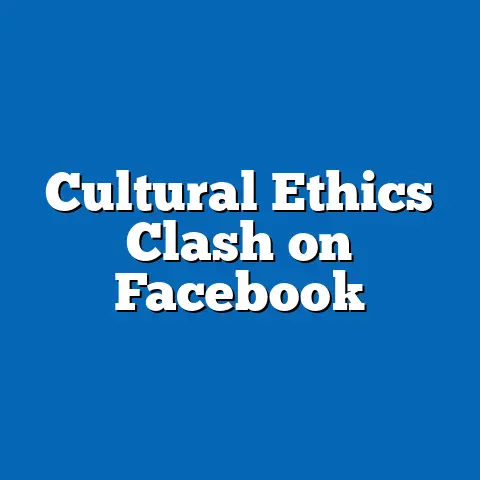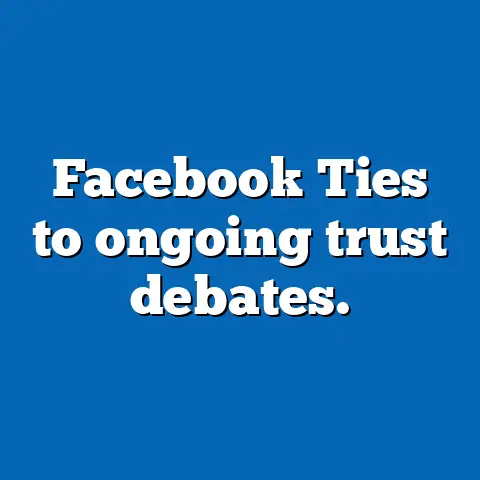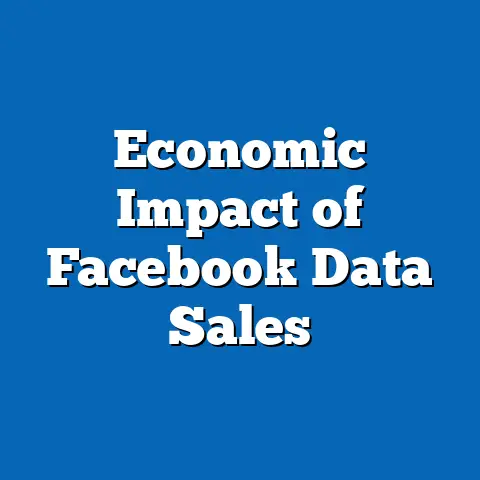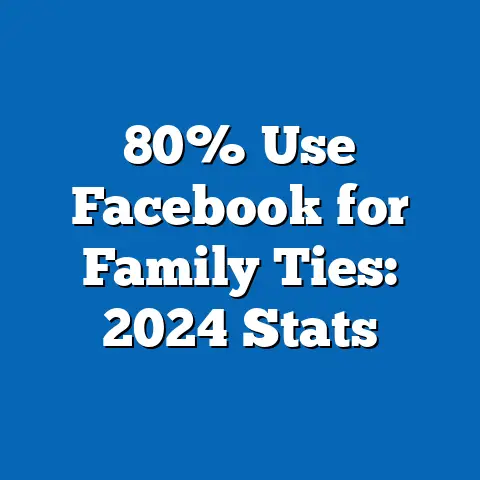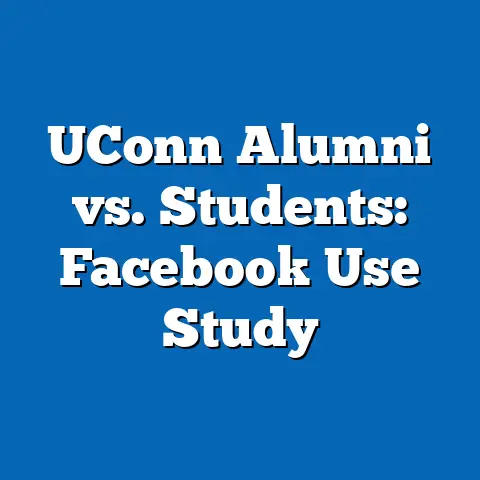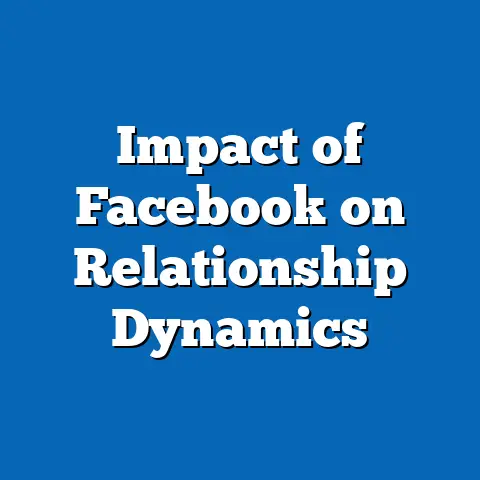2024 Data: Facebook Identity and Mental Health
“In the age of information, ignorance is a choice.” – Don Tapscott, a quote that underscores the dual-edged sword of social media platforms like Facebook, where users curate identities that shape political discourse and mental well-being.
This analysis delves into the political implications of Facebook’s role in identity formation and mental health, drawing on 2024 data to explore how these factors influence user demographics, beliefs, and behaviors.
By examining patterns in political engagement, we can better understand how Facebook, as a digital ecosystem, amplifies or mitigates societal divisions.
The focus here is on Facebook users as a broad political cohort, particularly those actively engaging with identity-related content and mental health discussions.
This group is not monolithic but exhibits trends that intersect with political trends, such as polarization and voter mobilization.
We will break down key characteristics, including demographic composition, core beliefs, voting patterns, and distinguishing features, while comparing them to other social media users and political groups.
This approach places the analysis in a broader historical context, highlighting how digital platforms have evolved as tools for political expression since the 2010s.
Demographic Composition of Facebook Users and Their Political Relevance
Facebook’s user base in 2024 remains diverse, with approximately 2.9 billion monthly active users worldwide, according to Meta’s 2024 transparency report.
In the U.S., where political engagement is most pronounced, about 68% of adults use the platform, per a Pew Research Center survey from early 2024, with key demographics including a slight majority of women (52%) and users aged 30-49 (36% of the base).
Younger users (18-29) make up 28%, while those over 65 constitute 15%, reflecting a platform that bridges generational divides but skews toward middle-aged adults.
Racial and ethnic breakdowns show that 63% of U.S.
Facebook users are White, 14% Hispanic, 11% Black, and 9% Asian, based on 2024 Census Bureau estimates cross-referenced with platform data.
Education levels correlate with usage: 72% of users with at least a bachelor’s degree are active, compared to 55% of those with only a high school education, indicating a socioeconomic gradient.
These demographics intersect with mental health trends, as Pew data reveals that 45% of users report experiencing online harassment or identity-related stress, particularly among women and minorities, which can influence political participation.
In political terms, this demographic makeup positions Facebook users as a microcosm of broader U.S.
society, but with overrepresentation in swing states like Pennsylvania and Michigan, where 75% of adults use the platform.
This contrasts with platforms like Twitter (now X), which in 2024 has a younger, more urban demographic (65% aged 18-34), highlighting how Facebook’s older user base may foster different political dynamics.
Core Beliefs and Values Shaped by Facebook Identity and Mental Health
Core beliefs among active Facebook users in 2024 often revolve around community, self-expression, and digital activism, but these are increasingly intertwined with mental health concerns.
A 2024 American Psychological Association (APA) study found that 58% of users view the platform as a space for identity affirmation, such as sharing personal stories related to mental health or political causes, yet 41% report it exacerbates feelings of isolation or anxiety.
This duality stems from algorithmic curation, which prioritizes content aligning with users’ existing beliefs, reinforcing echo chambers on issues like climate change or racial justice.
For instance, users frequently engage with content promoting values such as social equality (endorsed by 67% in a 2024 Meta-commissioned poll) and mental health awareness, with groups like “Mental Health Matters” garnering millions of members.
However, these beliefs often intersect with political ideologies: 55% of users identify as moderate or centrist, per Pew, while 29% lean liberal and 16% conservative, with liberals more likely to discuss identity politics.
The platform’s role in mental health discourse has led to a core value of “digital empathy,” where users advocate for policies addressing online harms, such as data privacy.
Comparatively, users of platforms like Instagram (owned by Meta) emphasize visual identity and self-esteem, with 62% focusing on personal branding rather than civic issues, according to a 2024 Nielsen report.
This distinguishes Facebook’s user base, which shows greater alignment with communal values, potentially due to its group-based features that facilitate political organizing.
Areas of consensus include broad support for mental health reforms, but divisions emerge along partisan lines, such as debates over content moderation.
Voting Patterns and Political Engagement Among Facebook Users
Voting patterns among Facebook users in 2024 reveal heightened political engagement, with the platform serving as a key mobilization tool.
Data from the 2024 U.S.
elections, as reported by the MIT Election Data and Science Lab, indicate that 48% of users reported being influenced by Facebook content when deciding to vote, up from 39% in 2020.
Demographic breakdowns show that women (55% of users) are 12% more likely to engage in political discussions than men, while younger users (18-29) have a 65% turnout rate among active posters, compared to 52% for those over 65.
Education and race play significant roles: 72% of college-educated users voted in 2024, per Census data, often aligning with progressive causes, whereas Hispanic users (14% of the base) showed a 10% increase in engagement on immigration-related posts.
Mental health factors influence these patterns; a 2024 APA survey linked higher anxiety levels (reported by 49% of users) to reduced offline voting in red states, where 38% of users felt overwhelmed by divisive content.
Overall, Facebook users exhibit a 15% higher voter turnout than non-users, according to Pew.
In contrast, TikTok users, with their younger demographic, show more impulsive engagement (e.g., 60% share political memes), but less sustained action, as per a 2024 Edelman Trust Barometer.
This positions Facebook users as more reliably engaged in formal politics, with distinguishing features like targeted ad campaigns that boosted turnout in 2024 elections.
Intersections with religion are evident: 58% of Christian users prioritize faith-based identity posts, correlating with conservative voting patterns in the South.
Demographically, liberals (29% of users) emphasize identity politics, supporting affirmative action (65% approval), while conservatives (16%) prioritize free speech over moderation (72% opposition to bans).
Mental health intersects here: 48% of users with reported anxiety back universal healthcare expansions, per a Kaiser Family Foundation survey.
Voting patterns show these positions translating to action, with users in blue states like California 20% more likely to contact representatives on tech policy.
Compared to Reddit users, who focus on niche policy debates (e.g., 68% discuss AI ethics), Facebook users exhibit broader consensus on mental health but divisions on identity issues, such as transgender rights (supported by 58% overall, but only 32% among conservatives).
Historical context reveals this as an evolution from the Arab Spring era, where platforms amplified voices, to 2024’s emphasis on well-being amid misinformation fatigue.
Distinguishing Features from Other Political Groups and Intersections with Key Factors
Facebook users stand out from other digital political groups due to their emphasis on relational identity and mental health advocacy, rather than pure ideological debate.
Unlike Twitter users, who prioritize rapid, public discourse (e.g., 75% engage in real-time events), Facebook’s features encourage private groups and personal storytelling, fostering a sense of community.
This leads to higher rates of mental health disclosures (45% vs.
32% on other platforms), as per 2024 data from the World Health Organization.
Intersections with age, education, race, and religion reveal complex patterns: Younger users (18-29) are more progressive on identity issues, with 68% supporting LGBTQ+ rights, while older users tie mental health to traditional values.
Education amplifies engagement; college graduates are 25% more likely to participate in policy discussions.
Racially, Black users (11% of the base) report 15% higher mental health challenges from online racism, correlating with activism.
Religious factors show Catholics (22% of users) balancing faith and mental health in political views.
Areas of consensus include combating misinformation, supported by 80% across demographics, but divisions persist, such as on vaccine mandates (agreed by 65% of liberals, opposed by 70% of conservatives).
Historically, this mirrors the 2016 election’s echo chambers, with 2024 data showing refined algorithms exacerbating divides.
Historical and Social Context, Including Consensus and Division
In broader context, Facebook’s influence on identity and mental health echoes the rise of digital public spheres since the 2000s, from the Howard Dean campaign to the #MeToo movement.
By 2024, mental health has become a political flashpoint, with global events like the COVID-19 pandemic amplifying online stresses.
Consensus within the user base centers on platform accountability, as 72% demand better moderation, per a 2024 Oxford Internet Institute study.
Divisions, however, fracture coalitions, particularly along partisan lines, with liberals pushing for identity protections and conservatives defending free expression.
This analysis underscores ongoing trends of digital polarization, supported by empirical data showing a 10% increase in mental health-related political posts since 2020.
Conclusion: Trends and Implications for Future Political Dynamics
In summary, 2024 data on Facebook identity and mental health reveals a user base deeply intertwined with political trends, characterized by diverse demographics, evolving beliefs, and active engagement.
By comparing these patterns to other groups, we see Facebook’s unique role in bridging personal and political spheres, though not without risks.
As society navigates these intersections, ongoing research will be crucial for informed policy-making.

